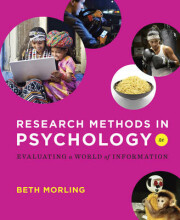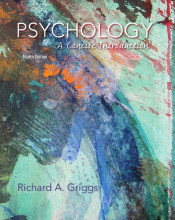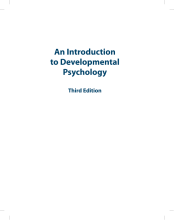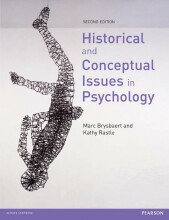Summary: Cognition Memory And Emotion
- This + 400k other summaries
- A unique study and practice tool
- Never study anything twice again
- Get the grades you hope for
- 100% sure, 100% understanding
Read the summary and the most important questions on cognition memory and emotion
-
lecture 1
This is a preview. There are 41 more flashcards available for chapter 30/03/2021
Show more cards here -
What are the basic steps of memory?
- Learning
- storage of information
- retention (behoud)
- retrieval (or not) based on cue
- Learning
-
What processes can influence the retention phase of memory?
- Consolidation; information is reinforced
Generalization; similarities between events are remembered - Distortion; information is altered/influenced
- Forgetting; information is lost
-
What was the first researcher on memory, and what did he research?
- Aristotle first researched memory.
- he studied associations between stimuli and how you build knowledge from there.
- this sparked an important philosophical thought in 17th and 18th Century (mainly British: John Locke, John Stuart Mill)
-
After aristotle, what further improvement in memory knowledge arose?
- The book Rhetorica ad Herennium was written.
- it is a self help book on how to get a better memory;
- describes the method of loci;
- 'if you want to remember a bunch of items in a particular order, place them along a story where you describe a route that is very familiar to you.'
- The book Rhetorica ad Herennium was written.
-
What was the contribution of charles darwin on memory?
- Memory, just like other features, is evolved to optimally help the species survive.
- example; the honey bee has also intermediate memory, which lasts up to a few days. This is optimal to remember the location of nutritious flowers to communicate this to the hive.
- bee doesn't remember flowers two months ago because it is not relevant for their survival.
- Memory, just like other features, is evolved to optimally help the species survive.
-
What were the contributions of knowledge on memory of ebbinghaus?
- Created the ebbinghaus forgetting curve
- counted how well he remembered lists of meaningless syllables at different points in time.
- Created the ebbinghaus forgetting curve
-
What were the contributions of knowledge on memory of Jost?
- Created Jost's law
- If two memory traces have equal retrieval probability, but different ages, the older one will;
- be forgotten more slowly than the younger one
- benefit more from additional learning
- Created Jost's law
-
What were the contributions of knowledge on memory of Bartlett?
- He discovered that memories are complemented by known information.
- if you show someone a picture, and ask which of the two pictures was shown earlier, they will say the left one.
- because we know plates are whole and round, and hearts as well so we remember them as such even though the right picture was shown initially.
Bartlett discovered memory is a construction; schemata and gestalt psychology. - He discovered that memories are complemented by known information.
-
What were the contributions of knowledge on memory of william james?
- One of the founders of psychology
- Distinguished primary and secondary memory, which is the equivalent of short and long term memory
- discoverer of concepts like the tip-of-the-tongue phenomenon
- One of the founders of psychology
-
What were the contributions of knowledge on memory of Freud?
- stressed emphasis on unconscious processes
- proposed repression as a mechanism for forgetting (influence of emotion)
- gave rise to the slip-of-the-tongue phenomenon
- stressed emphasis on unconscious processes
- Higher grades + faster learning
- Never study anything twice
- 100% sure, 100% understanding

































